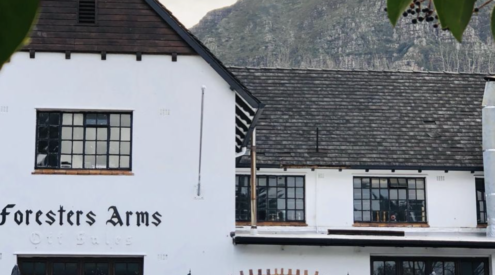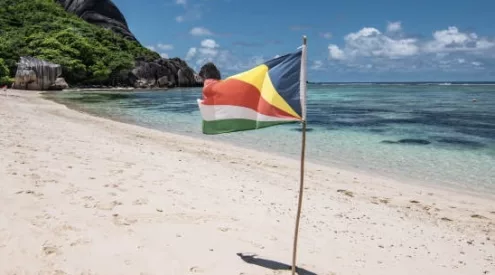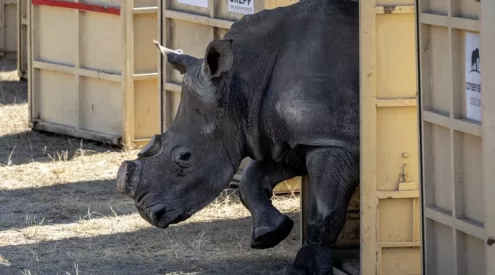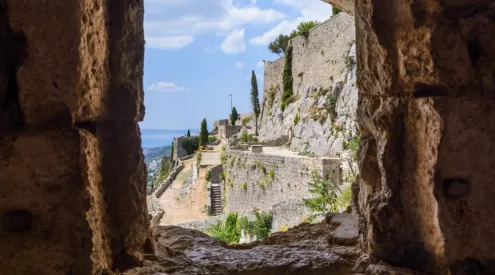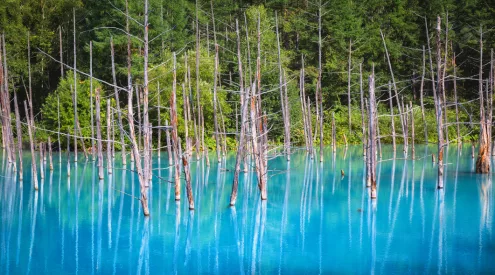We arrived in Venterskroon in the baking, midday heat and found a welcome square of shade on a grass verge, just outside the derelict looking “˜Imperial Inn.’ You could, I guess, call it the centre of town, but if the inn was ever imperial, those days are long gone now. A lone, barking boerboel suggested that there were at least some permanent inhabitants of Venterskroon, but other than a tired looking mother and child waiting for a lift outside the information centre, there was no sign of life among the seven or eight scruffy looking buildings that lined the dusty, red-gravel road.
Later, Jan Fourie from Dome Impact Tours and our guide around this small patch of the vast Vredefort Dome region, told me that Venterskroon had been more or less abandoned for years now. Even the lonely looking “˜Vredefort Dome Information Centre,’ the sign outside assuring opening hours of 8am to 4:30pm daily, was now closed, apparently due to an unpaid electricity bill and Eskom’s resulting denial of service.
In total, 140 kilograms of pure gold were dug out of the hills behind this once bustling little town which experienced its hayday back in the 1880’s. The rush, however, was short lived and soon overshadowed by the much richer seams discovered some 120 kilometres away on the Witwatersrand. The now overgrown tunnels are partially flooded in places, but otherwise easily accessible if you know where to look. A short climb and the low black holes open up under the trees, a few of the more vertical ringed with rough barbed wire screens, but otherwise there has been little attempt to seal them or block public access.
The gold that drove the boom and bust of Venterskroon was some of the first to be found in what is now know as the “˜golden circle,’ the massive ring of gold-rich conglomerate thrown up into the accessible higher reaches of the Earth’s crust by a cataclysmic meteorite impact some two billion years ago.
The meteorite, estimated to have been roughly the size of Table Mountain, is thought to be one of the largest to ever hit the Earth. It is also believed to be the oldest and has left behind the largest verified impact site on the planet with a diameter of approximately 280 kilometres, though the rim itself is now heavily eroded and only really visible on satellite photographs. In all the 2,023,000,000 years since this incredible impact, no other known event has ever released so much energy in single devastating explosion.
As the huge meteorite slammed into the Earth (perhaps at as much as 40,000 kilometres per hour according to Mr. Fourie), the surface of the Earth liquefied and rippled out like water on a smooth pond. The “˜dome’ itself is the remnant of the central mound that rose up over the original impact site – you may have seen the effect frozen in time with high-speed photography as drops of water hit a smooth body of water, ripple out, then rise up vertically in columns over the point of impact.
The ripples themselves are what now form this “˜golden circle’ – the rings of hills and ridges which push back for hundreds of kilometres from their domed epicentre. It is entirely due to this massive event that South Africa has the rich seams of Witwatersrand gold that make the country one of the largest producers of this precious metal in the world today.
In 2005, the Vredefort Dome area was recognised as a UNESCO World Heritage site and this, along with its pre-historic role in shaping South Africa’s history is the reason the Braai4Heritage tour has stopped here. With all the rushing around, seeing this and learning that, we only managed to squeeze in a quick little braai with our guide before pushing onto Potchefstroom. Not the most memorable of the braais so far, but certainly one of the more fascinating days, learning about this ancient meteorite impact and the knock-on effects it has had for South Africa these two billion or so years later.

